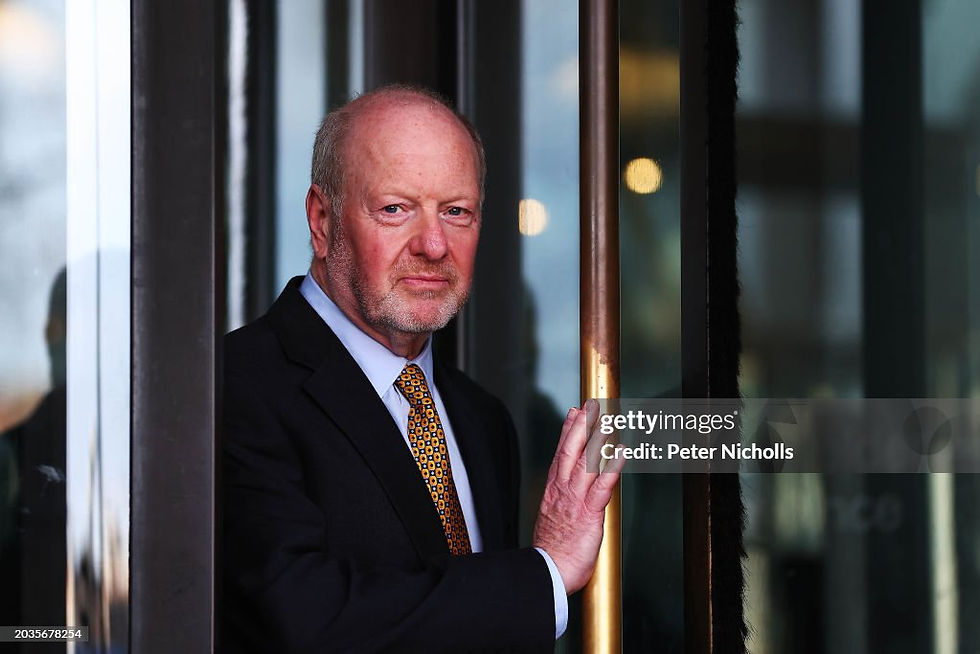What kind of Democracy do we want?
- Andrew Wilkinson
- Apr 14, 2024
- 3 min read
Updated: May 4, 2024

In politics, the principles of integrity and accountability are paramount. Yet, older revelations surrounding Lord Ashcroft's tax affairs, coupled with the ongoing scrutiny over Angela Rayner's tax arrangements and electoral registration, paint a disheartening picture of the erosion of ethical standards within Westminster.
The questions surrounding Angela Rayner's tax affairs and electoral registration raise red flags about accountability and adherence to legal norms. The accusations of potential capital gains tax evasion and discrepancies in electoral registration not only undermine public trust but also call into question the ethical conduct expected of elected representatives. In addition, her accuser, Lord Ashcroft's persistent non-dom status, despite Parliament's efforts to ensure equitable taxation for all peers, showcases a blatant disregard for financial transparency and civic duty. While ordinary citizens diligently fulfil their tax obligations, Ashcroft's ability to circumvent tax liabilities through offshore arrangements raises serious concerns about fairness and equity in the tax system.
Similarly, the Johnson government was beset with scandals such as the prorogation of parliament, lying to the Queen, party-gate, the resignation of his anti-corruption tzar amongst a litany of other instances. In a political landscape marred by scandals and ethical lapses, the very foundation of democratic governance is at risk. Westminster, once hailed for its esteemed traditions and ethical standards, now grapples with a crisis of integrity that threatens to erode public confidence in the political establishment.
Recent controversies underscore the urgent need for a renewed commitment to ethical conduct and transparency in public life. As custodians of democracy, politicians bear a solemn responsibility to uphold the highest standards of integrity, serving as exemplars of ethical leadership for the benefit of society as a whole.
In the face of mounting public disillusionment, the onus lies on political leaders to restore faith in the integrity of the political process and demonstrate unwavering dedication to the principles of accountability and transparency. Failure to do so not only risks further eroding public trust but also undermines the very foundations of democracy upon which Westminster stands.
In the realm of public life, integrity, accountability, and honesty are paramount virtues that politicians are expected to uphold. However, recent events have cast a shadow over these principles, leading to growing concerns about the erosion of public trust in political institutions. The Committee on Standards in Public Life (CSPL), established in 1995, laid down seven fundamental principles known as the Nolan Principles, which include selflessness, integrity, objectivity, accountability, openness, honesty, and leadership. Yet, as Lord Weardale, the current chair of the CSPL, highlights, recent scandals such as the Owen Paterson affair, controversies surrounding the redecoration of Downing Street, and the infamous "Party-gate" have shaken the public's confidence in the adherence of politicians to these principles.
The public outcry, articulated by Kathryn Stone, the independent parliamentary commissioner for standards, underscores the widespread anger and frustration over perceived conflicts of interest and the perceived impunity with which members of parliament conduct themselves. This sentiment is further corroborated by Professor Alan Renwick's study, "What Kind of Democracy Do People Want?", which reveals that the electorate values honesty, integrity, and adherence to rules in their elected representatives.
However, despite the evident demand for higher ethical standards in politics, achieving consensus among MPs on reforming the code of conduct proves to be a daunting task. While some, like Labour MP Richard Burgon, advocate for stringent measures such as banning MPs from taking on second jobs, others, like Sir Desmond Swayne, resist what they perceive as constraints on their freedom of expression within the parliamentary arena.
Nevertheless, amidst this discord, there lies a crucial opportunity for the standards committee to capitalise on the prevailing public sentiment and spearhead meaningful reforms. As Esther Webber, Politico's senior UK correspondent, aptly notes, the current scrutiny on standards presents a "unique moment" for British politics, wherein the outcomes of ongoing consultations hold significant weight.
The dissatisfaction with the state of democracy in the UK, as highlighted by various studies including those by the UCL Constitution Unit, underscores the urgent need for substantive change. While the British public overwhelmingly supports democracy, their faith is contingent upon its ability to deliver effective governance and uphold core democratic values. The erosion of trust in politicians, as evidenced by surveys indicating greater trust in the courts compared to the prime minister, Parliament, and the civil service, speaks volumes about the pressing need to restore integrity and accountability in public life.
In essence, the recent tumultuous events have laid bare the imperative for politicians to adhere to higher standards of conduct. Failure to heed these calls not only risks further disillusionment with the political process but also jeopardizes the very foundation of democratic governance in the UK. As Lord Weardale rightfully warns, MPs must heed the public's demand for accountability, lest they face the political repercussions of their actions.





Comments